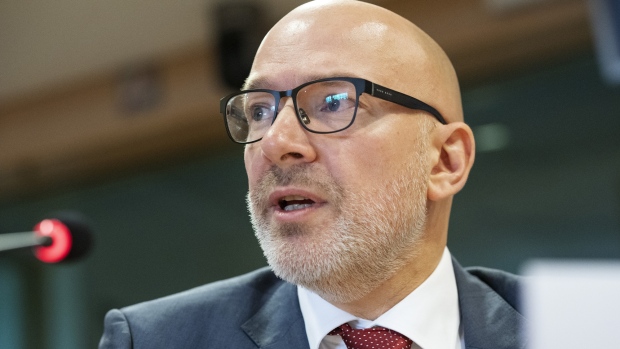Jun 24, 2019
Danske Fires Ex-Interim CEO Nielsen Due to Overcharging
, Bloomberg News

(Bloomberg) -- Danske Bank A/S fired Jesper Nielsen, who until last month was the lender’s interim chief executive officer, after finding that a number of clients had been overcharged.
The dismissal comes as Denmark’s biggest bank is trying to put a $230 billion money laundering scandal behind it. Danske revealed on Monday that 87,000 customers in Denmark who invested in its Flexinvest Fri product were overcharged. They are to receive about 400 million kroner ($61 million) in compensation, the bank said. Nielsen was head of banking in Denmark when he was dismissed.
Nielsen “did not to a sufficient degree ensure that the Flexinvest Fri product was suitable for the bank’s customers,” Chairman Karsten Dybvad said in a statement. “Therefore, we find that Jesper cannot continue in his position.”
Danske fell as much as 2.7% in Copenhagen, making the stock Monday’s worst performer in the Bloomberg European Banks Index. The bank has lost about 60% of its market value since the beginning 2018.
Nielsen had been touted by local media as permanent CEO material before the board went for an external candidate. Danske fired CEO Thomas Borgen in October over the laundering scandal and Nielsen acted as interim CEO until Chris Vogelzang, a former ABN Amro banker, took over earlier this month.
Danske said that customers were overcharged due to “a number of management decisions,” which were related to the implementation of new MiFID II regulation in 2017. Danske said the fees were too high compared with expected returns in a low-interest environment, which made the product “unsuitable for some customers.”
While Danske searches for a replacement for Nielsen, Glenn Soederholm, who’s head of banking in the other four Nordic countries, will take over Danish banking.
Danske said it had informed the Danish Financial Supervisory Authority, which is is currently looking into the matter. “We expect to receive justified and severe criticism from the FSA,” Danske said.
Danske said it was made aware of the issue through an employee’s report in September. The lender was criticized for not taking internal whistle-blower reports seriously during the nine years through 2015, when its Baltic operations were allegedly used to launder Russian money.
(Adds share price reaction.)
To contact the reporter on this story: Christian Wienberg in Copenhagen at cwienberg@bloomberg.net
To contact the editors responsible for this story: Tasneem Hanfi Brögger at tbrogger@bloomberg.net, Nick Rigillo
©2019 Bloomberg L.P.